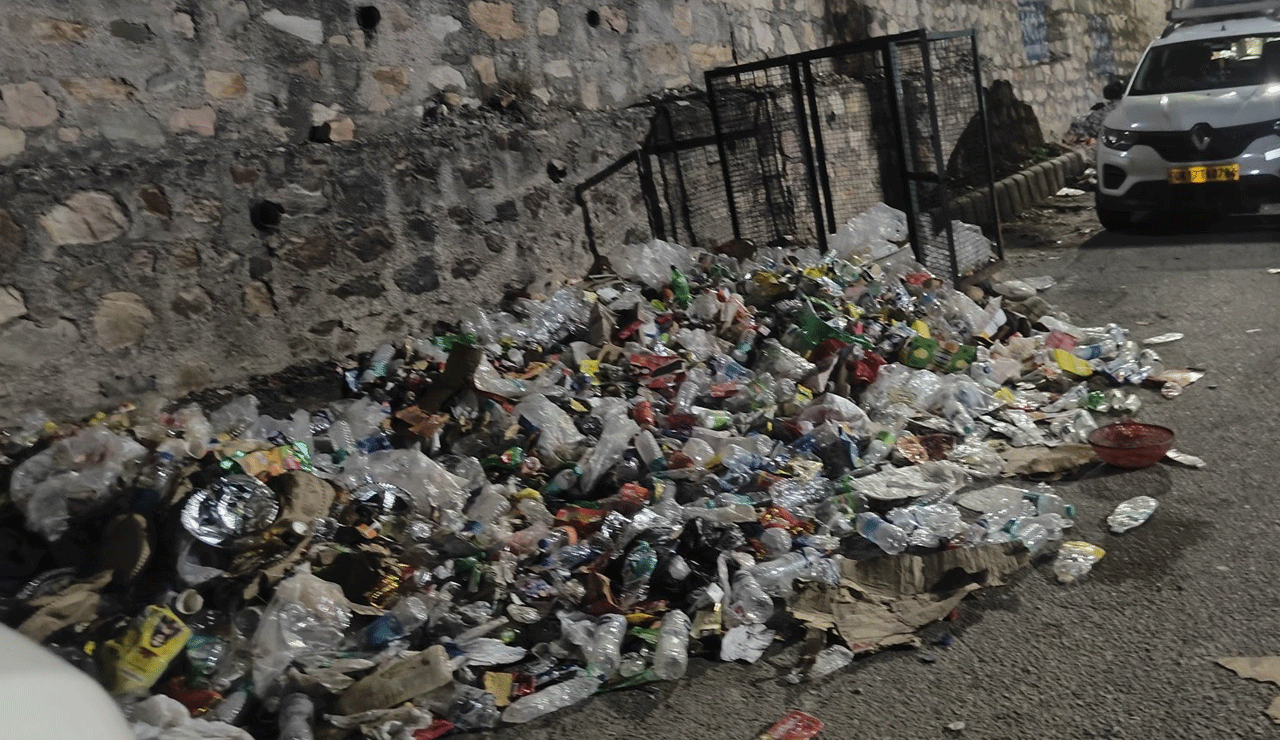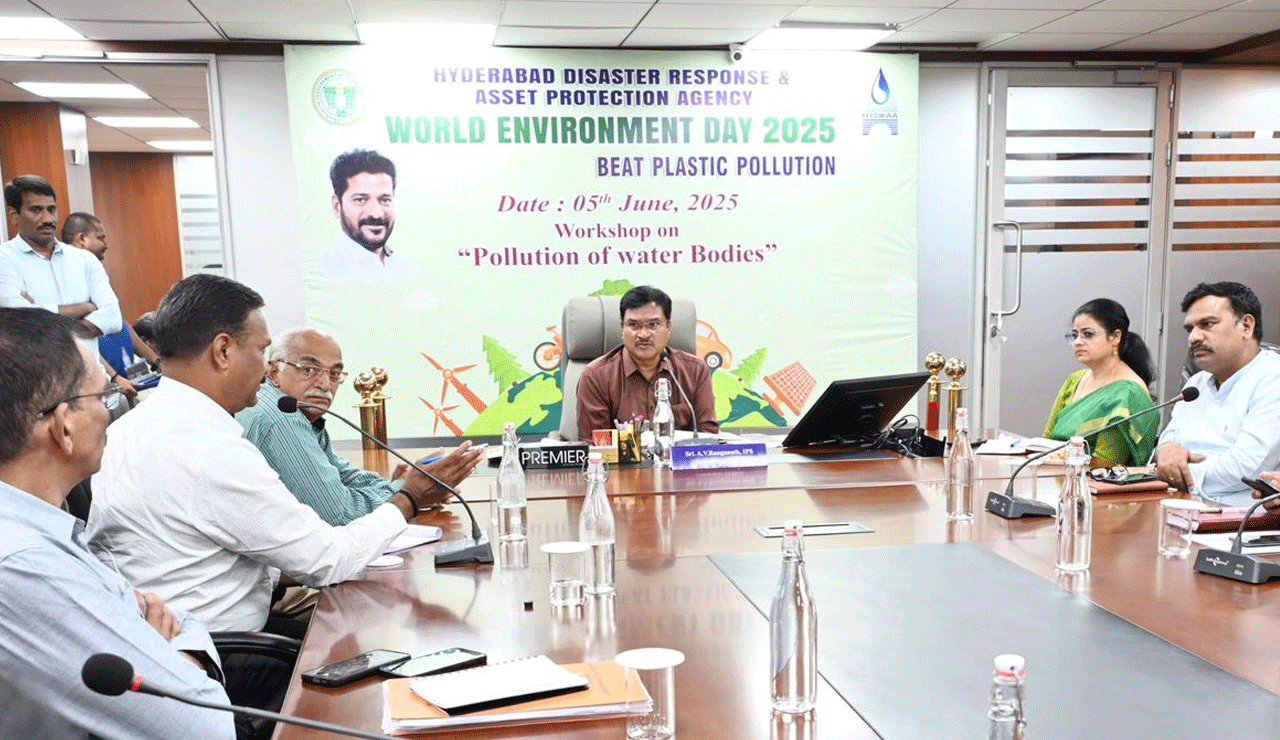Plastic Pollution Puts Hyderabad’s Lakes at Risk – Urgent Action Needed
Environmentalists, civic leaders, and researchers raised serious concerns about plastic pollution in Hyderabad, warning that unmanaged plastic waste is polluting lakes, choking stormwater drains, and heightening the risk of urban flooding.

Hyderabad: Environmentalists, civic leaders, and researchers raised serious concerns about plastic pollution in Hyderabad, warning that unmanaged plastic waste is polluting lakes, choking stormwater drains, and heightening the risk of urban flooding. The warning came during a seminar titled “Pollution of Water Bodies”, held on World Environment Day by HYDRAA under the leadership of Commissioner AV Ranganath.
Table of Contents
Plastic Waste Flowing from Drains to Lakes in Hyderabad
The seminar focused on how plastic waste from households and commercial establishments ends up in open drains and nalas, eventually reaching lakes like Hussain Sagar, Durgam Cheruvu, and Fox Sagar. This waste not only pollutes water but also damages aquatic ecosystems and disrupts natural water flow.
Also Read: Hyderabad Metro to Expand by 86 km – Telangana Government Approves New Plan
“Plastic doesn’t vanish; it moves through our drainage system and ends up in our lakes. We must act fast before we reach the point of no return,” said one environmental expert at the event.
Key Issues Highlighted by Experts
Several critical challenges were discussed during the seminar:
- Stormwater drains and nalas are clogged with non-biodegradable waste, particularly single-use plastics.
- Lack of source-level waste segregation results in mixed garbage being dumped or swept into water bodies.
- Waterlogging and flooding in urban areas are often caused by blocked drains filled with plastic debris.

Multi-Pronged Strategy Proposed to Fight Plastic Pollution
The panel called for a city-wide movement to tackle the problem. Proposed solutions included:
- Strict enforcement of existing plastic bans and regulations.
- Large-scale recycling programs with government and private sector collaboration.
- Use of technology, including drones and sensors, to identify plastic waste hotspots.
- Public awareness campaigns to promote responsible waste disposal.
- Incentives for using eco-friendly alternatives like cloth bags, biodegradable packaging, and reusable items.
Collective Responsibility Is Key, Say Leaders
Commissioner AV Ranganath stressed that public involvement is crucial:
“Government policy alone cannot solve this. We need community-driven efforts to make real change,” he said, inviting participants to share actionable solutions.
Grassroots Voices Call for Community-Based Interventions
Prominent participants included:
- M Suryanarayana, Swachh Bharat campaigner
- Subhash Reddy, Smaran NGO
- Dr. Himabindu, JNTU professor
- Madhulika Chaudhary, social worker
They emphasized the need for localised efforts, including school-level education, community clean-up drives, and NGO partnerships to tackle the issue from the ground up.
Time to Act Before It’s Too Late
The event concluded with a powerful call for collective action to protect Hyderabad’s water bodies from irreversible damage. Experts and civic leaders urged the government and citizens to come together for a cleaner, safer, and more sustainable Hyderabad.
